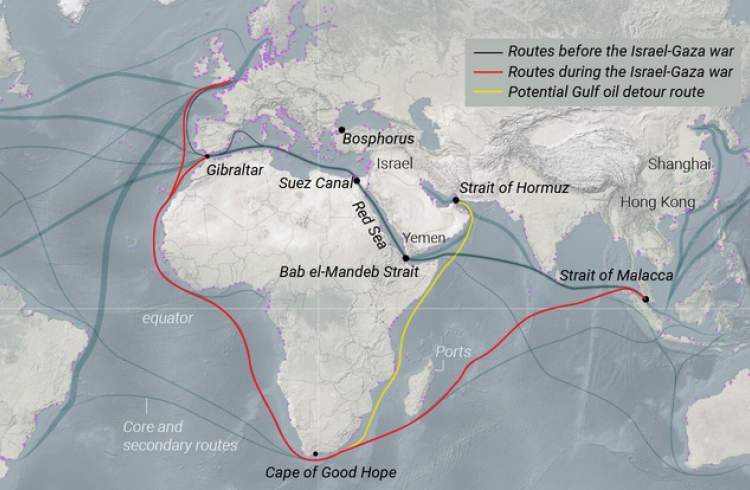Freight rates have been stabilising but the missile attack against a Belize-flagged ship could further disrupt global trade and hurt consumers. Central banks could delay easing interest rates due to inflationary concerns and this would in turn dampen the business outlook.
- Red Sea shipping crisis stokes further inflation fears
- HSBC’s Profit Sinks on $3 Billion Impairment on Chinese Bank
- Russia completes grain deliveries to six poorest African countries
- Iran-Venezuela trade volume can increase to $10 billion in 1st step, $20 billion in 2nd step: President Raisi
- Will Singapore, Hong Kong step up crypto scrutiny as US cracks down on Binance, Coinbase?
- US Congress averts historic default, approves debt-limit suspension
- Fed plans broad revamp of bank oversight
- Meta posts 3% rise in Q1 earnings above experts’ expectations
- AI could automate as many as 300 million full-time jobs
- Elon Musk says US default is a matter of time






